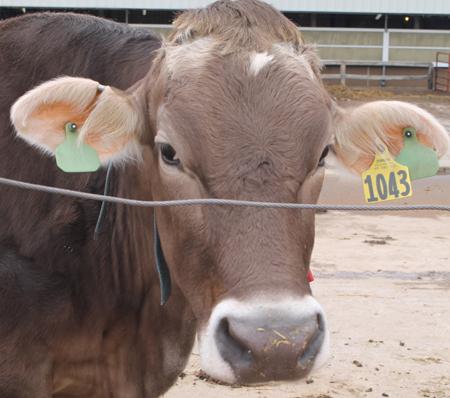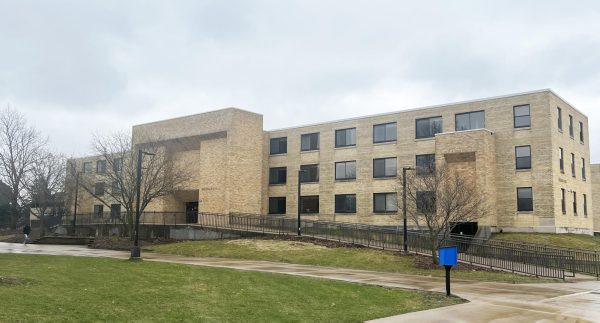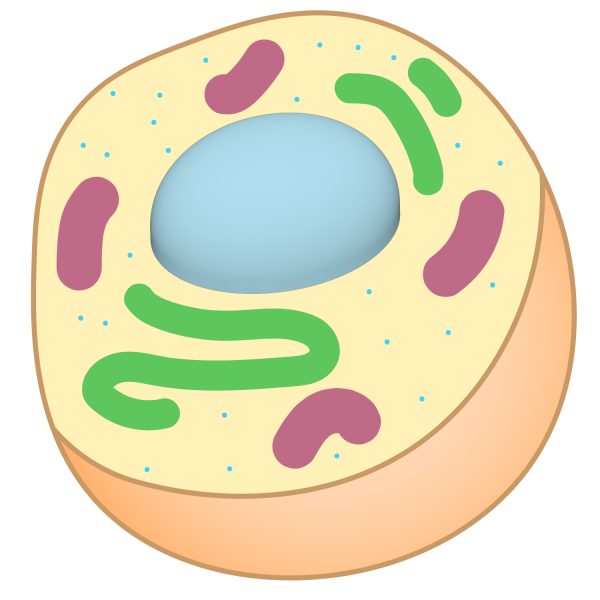Pioneer Farm modernizes technology
UW-Platteville students research new technology, LELY Juno, which measures feed efficiency
Students are exploring and utilizing new technology at the Pioneer Dairy Farm in order to measure feed efficiency and milk production in dairy cattle.
The university had previously invested in a LELY Juno, which is a robot that pushes up the feed in the barn for the cows.
The feed pusher automatically moves along the feeding alley every hour at the university’s farm, taking ten to fifteen minutes to push up the feed.
When the machine is in operation, it pushes the feed towards the cows without disturbing them.
Kary Babb, a senior animal science major, is currently in charge of the research.
“The cows are very curious when the robot goes by and pushes up the feed,” Babb said. “The Juno makes a dinging noise to tell the cows that the feed is going to be pushed up; this way, it makes the cows want to come and eat more feed.”
The university purchased a LELY Juno 100.
“We could have purchased a 150, but the 100 is smaller and it made more sense to get that size than the big one for the farm,” Babb said. “It’s really nice because when it goes by every hour, it pushes everything up, so the cows eat all of the feed instead of sorting through it.”
After graduation in December 2014, Babb plans on becoming a nutrition consultant.
“Nutrition is exciting to me,” Babb said. “I like being able to make rations and help producers make better rations for their cattle so the cattle can produce more.”
Babb is enthusiastic and passionate about this research because it has been a great opportunity for her in the nutrition industry.
“I like being able to do this because it’s very hands-on,” Babb said.
The research began on Feb. 1, which was a controlled month.
“We just looked at feed efficiency and milk production for the month,” Babb said.
The Juno started running on March 1 and will continue to run until April 30.
“During these months, we are going to test to see if there will be more feed being consumed and if the cows will then, in return, produce more milk,” Babb said.
In May, they will plan for another controlled month in order to see if the relationship between feed efficiency and milk production changes in the future.
“So far, we’ve had a few problems. At the end of February, we tested it out just to make sure it worked before the initial testing; there were a few technological problems that we were able to fix,” Babb said. “Another thing is that the robot runs on radar for the path to push up feed, and it would run into the wall instead of going straight. One [other] thing that can be a problem is that when the cows eat, they can toss the feed out too far and the Juno isn’t able to push up all the feed. Besides those minor problems, the Juno runs great.”
Dr. Matt Akins, assistant professor of animal nutrition at UW-Platteville, is the advisor for the research.
“So far, everything is going very well and we hope to see an increase in feed efficiency and milk production at the end of the results,” Akins said.
Also, Cory Weigel is the manager of the Pioneer Farm Dairy Enterprise and maintains an enthusiastic and confident mindset throughout the research process.
“I really like the Juno. I know that feed is getting pushed up and is always in front of the cows,” Weigel said. “I have seen an increase in feed intake, as well as an increase in milk production. We had a few issues getting it started, but now, everything is working well and I’ve had no problems.”
Research will continue with May being another controlled month in order to determine whether there will be any differences after the average months of March and April.
After the introduction of the Juno, the Pioneer Dairy Farm plans to continue using this technology after the end of May.














